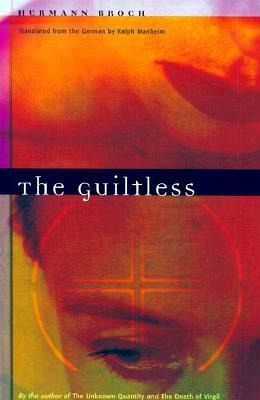Nicht lieferbar

The Guiltless
Versandkostenfrei!
Nicht lieferbar
Murder, lust, shame, hypocrisy, and suicide are at the center of The Guiltless, Hermann Broch's novel about the disintegration of European society in the first three decades of the twentieth century. Broch's characters -- an apathetic man who can barely remember his own name (Broch mostly refers to him as A.); a high-school teacher and his lover who return from the brink of a suicide pact to carry on a dishonest relationship; Zerline, the lady's maid who enslaves her mistresses, prostitutes the young country girl Melitta to gentleman A., and metes out her own justice against the "empty wickedn...
Murder, lust, shame, hypocrisy, and suicide are at the center of The Guiltless, Hermann Broch's novel about the disintegration of European society in the first three decades of the twentieth century. Broch's characters -- an apathetic man who can barely remember his own name (Broch mostly refers to him as A.); a high-school teacher and his lover who return from the brink of a suicide pact to carry on a dishonest relationship; Zerline, the lady's maid who enslaves her mistresses, prostitutes the young country girl Melitta to gentleman A., and metes out her own justice against the "empty wickedness" of her betters -- are trapped in their indifference, prisoners of a sort of "wakeful somnolence". These men and women may mention the "imbecile Hitler", yet they prefer a nap or sexual encounter to any social action. In Broch's mind this kind of ethical perversity and political apathy paved the way for Nazism. Broch believed that writing can purify, and by revealing Germany's underlying guilt he hoped to purge indifference from his own and future generations. In The Guiltless, Broch captures how apathy and ennui -- very human failings -- evolve into something dehumanizing and dangerous.



